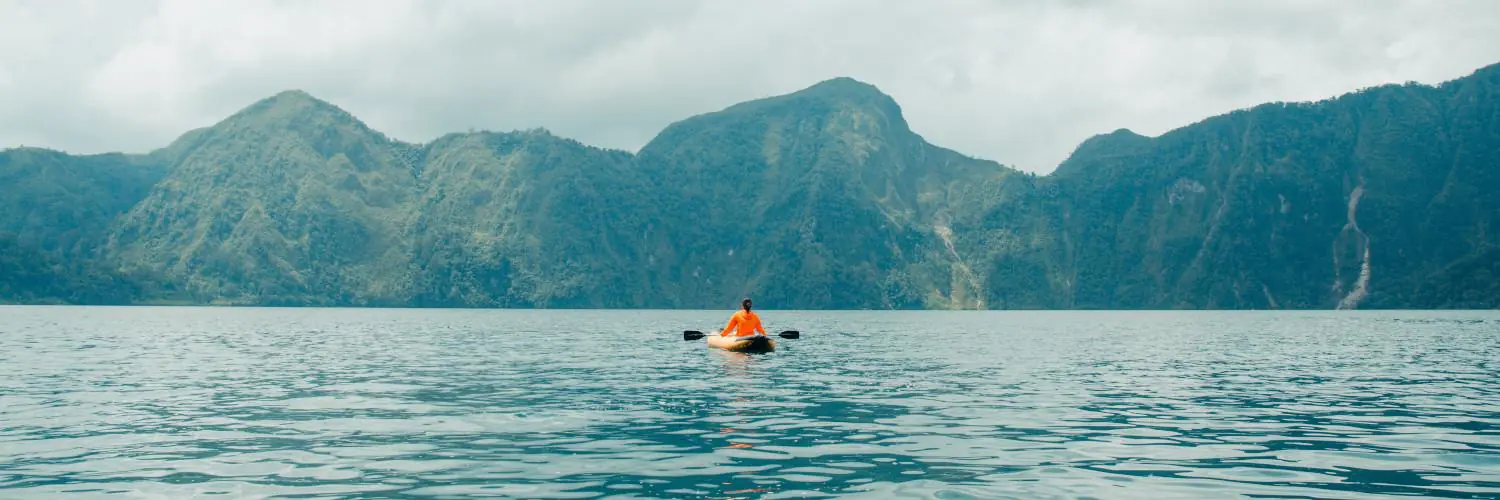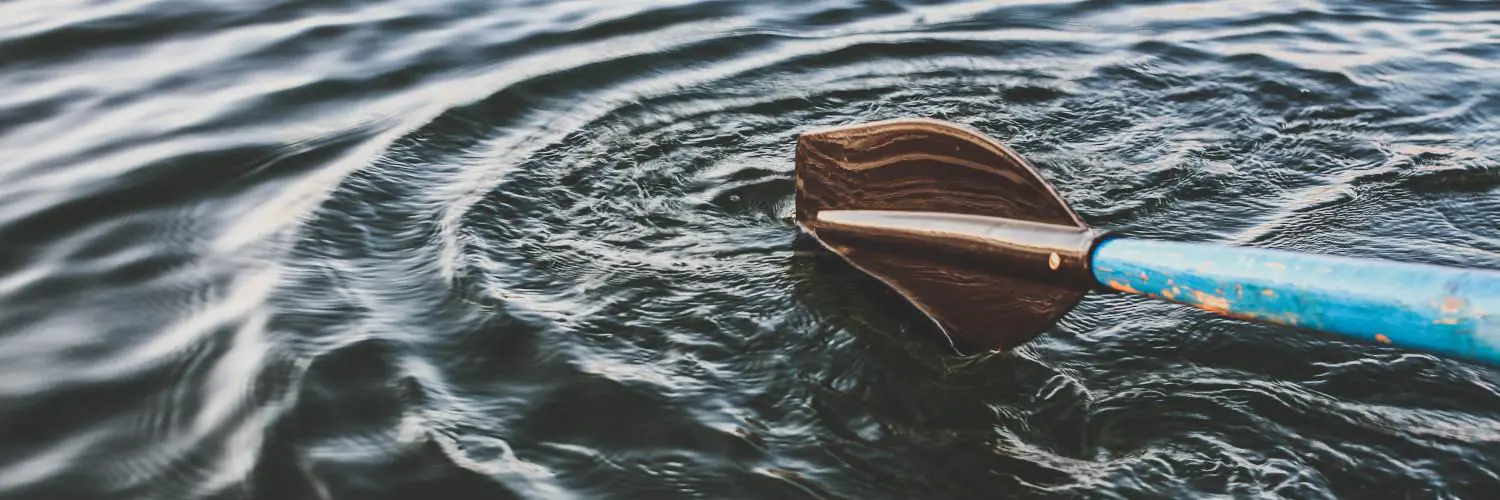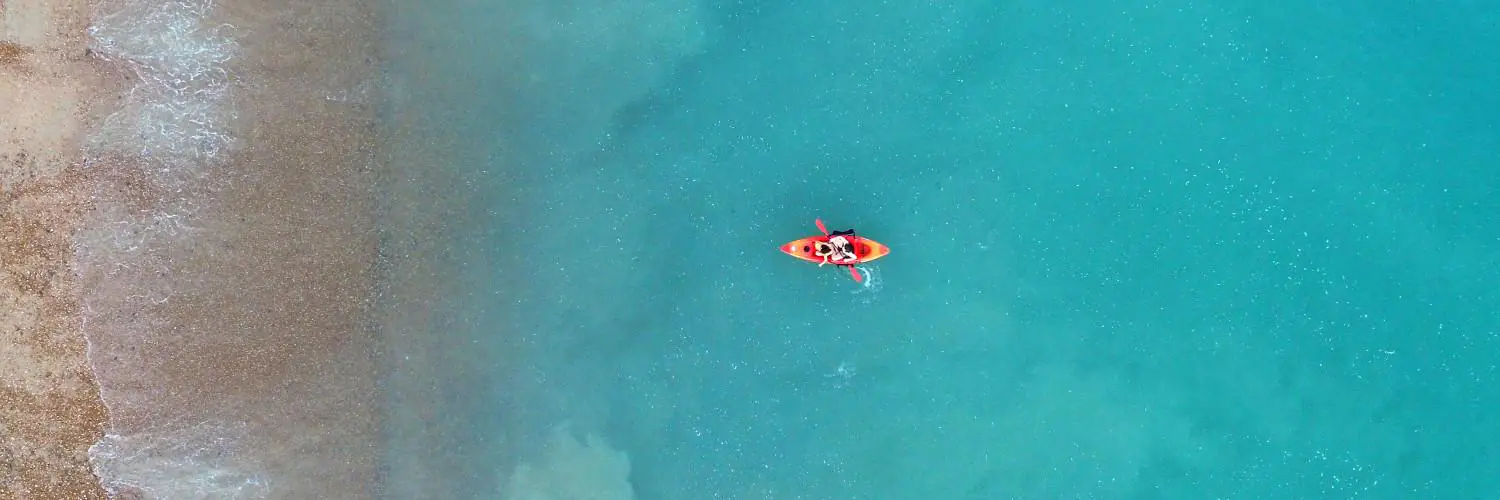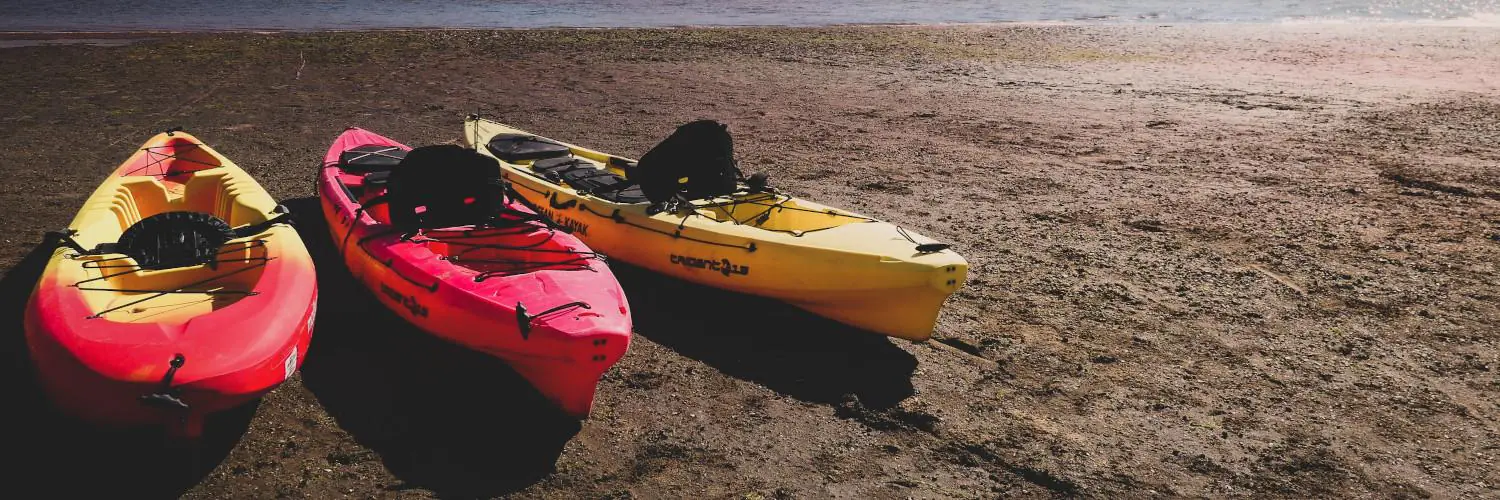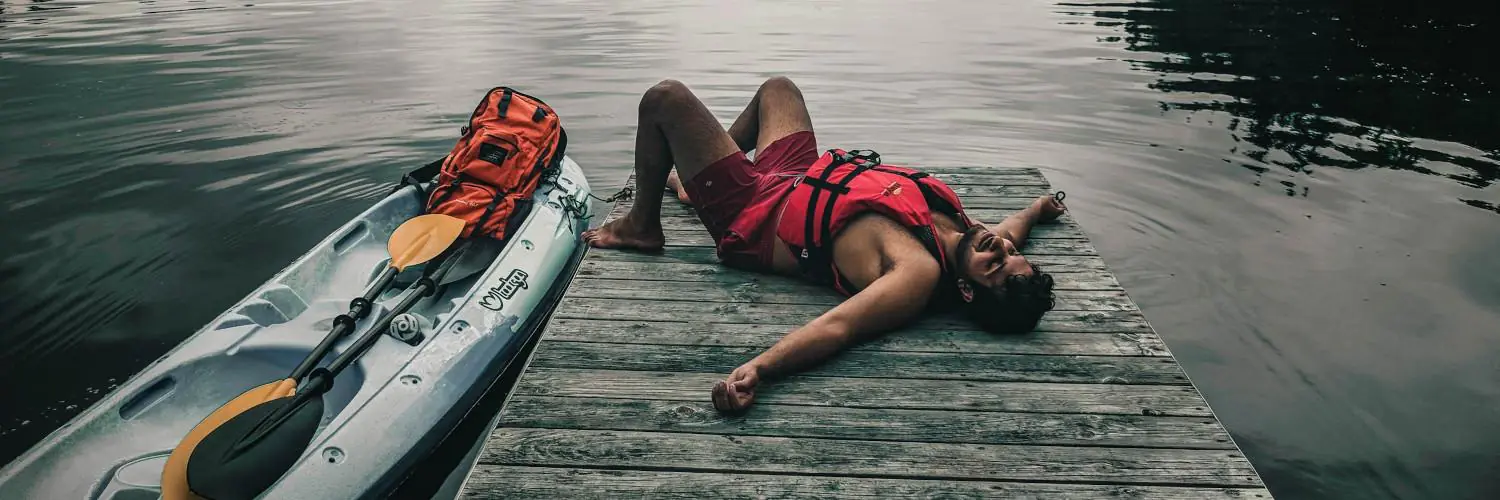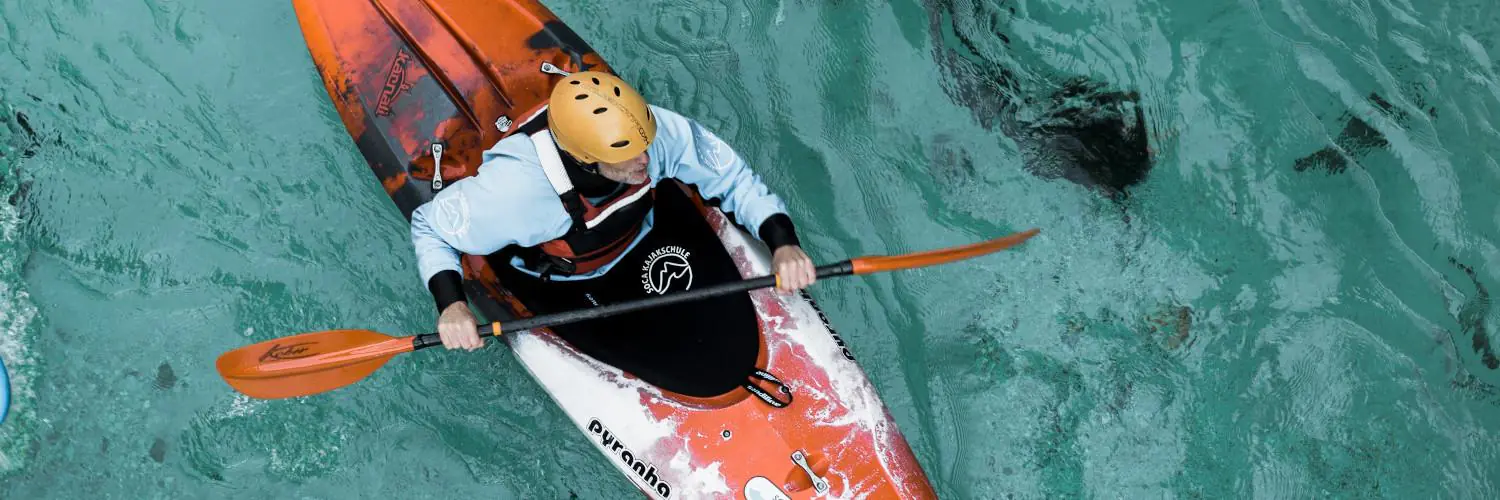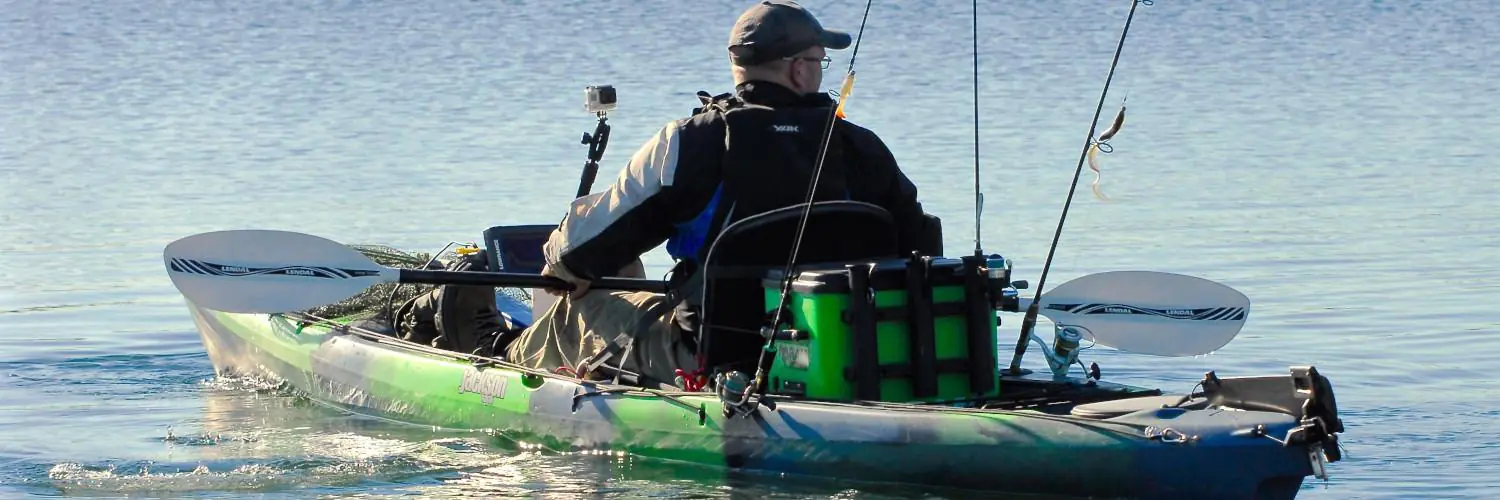Gwinnett County, Georgia, is becoming a popular destination for water sports enthusiasts seeking adventures in kayaking. The county offers a variety of waterways that cater to both beginners and experienced kayakers. With its natural beauty and diverse river systems, Gwinnett County provides a scenic backdrop for paddlers to explore the tranquil waters.
Kayaking in the county presents an opportunity to enjoy the outdoors while getting a good workout. Many local outfitters in the area provide rentals and guided tours, offering a taste of the kayaking experience with all the necessary equipment included. The Chattahoochee River, which runs through Gwinnett County, is a favored spot for many kayakers, offering calm waters ideal for a leisurely day trip as well as areas with mild rapids for those looking for a bit more excitement.
Lake Lanier and the Chattahoochee River National Recreation Area in Gwinnett County further enrich the kayaking experience with their well-maintained access points and beautiful surroundings. The county’s commitment to preserving and providing access to these natural resources ensures that both residents and visitors can continue to enjoy kayaking adventures in this part of Georgia.
Table of Contents
Kayaking in Gwinnett County: An Overview
Gwinnett County offers an array of kayaking opportunities for enthusiasts looking to explore the serene waters of Georgia. From tranquil river passages to accessible water trails, paddlers can find a unique and fulfilling experience.
Waterways and Rivers
Gwinnett County is graced with several water bodies ideal for kayaking:
- Chattahoochee River – Known for its scenic beauty, the Chattahoochee River forms the western boundary of Gwinnett County. It provides both calm stretches for beginners and more challenging currents for experienced kayakers.
- Yellow River Water Trail – Stretching for 53 miles through multiple counties, including Gwinnett, this trail offers flatwater kayaking suitable for various skill levels. The section in Newton County, in particular, is recommended for beginners.
Paddlers in Gwinnett County can enjoy the diverse experiences these waterways offer, ensuring there is something for every kind of kayaker, whether they seek the thrill of navigating currents or the peace of gliding on still water.
Key Kayaking Locations
Gwinnett County offers prime kayaking spots that cater to both tranquil paddling and adventurous river experiences. These locations are preferred due to their scenic beauty, accessibility, and well-maintained facilities.
Chattahoochee River National Recreation Area
The Chattahoochee River National Recreation Area presents kayakers with a chance to explore the serene waters flowing past Gwinnett County. Specifically, the section below Buford Dam is popular among paddlers for its calm stretches and periodic rapids that provide a varied experience suitable for many skill levels. Kayakers can anticipate a blend of leisurely paddling and the excitement of Class I rapids, creating an engaging journey along one of Georgia’s most iconic rivers.
- Access Points: Multiple access points are available for kayakers to enter the Chattahoochee, ensuring convenience.
- Facilities: The area is equipped with restrooms and picnic spots for a comfortable day out on the water.
George L. Smith State Park
Although not directly within Gwinnett County, George L. Smith State Park is worthy of mention for its serene kayaking environment and rich natural backdrop. Boasting cypress and tupelo trees draped with Spanish moss, the park’s serene millpond provides paddlers with an idyllic setting to glide through calm waters while observing diverse wildlife. Here, kayakers find themselves immersed in the tranquility of Georgia’s classic southern landscape.
- Location: Situated in central Georgia, the park is a manageable distance from Gwinnett County for a day trip or extended visit.
- Wildlife Viewing: Paddlers may spot a variety of bird species and the occasional alligator sunning itself on the banks.
Kayaking Gear and Preparation
Before setting out on the waters of Gwinnett County, kayakers should prioritize selecting appropriate gear and adhere to safety guidelines to ensure a secure and enjoyable experience.
Essential Gear
A kayaker’s experience is greatly influenced by their choice in kayaks and paddles. For Gwinnett County’s mix of calm and gently moving waters, one can choose between a range of kayaks. The essentials include:
- Kayak: Stability is key, especially for beginners.
- Paddle: Ideal kayak paddles have metal, fiberglass, or carbon shafts with blades that can be plastic, fiberglass, or carbon.
- Life Jacket: A properly fitted personal flotation device (PFD) is non-negotiable.
- Fishing Gear: If fishing, include a rod, bait, and tackle that are designed for use from a kayak.
Here’s a checklist of additional items to consider:
| Gear Type | Examples of Gear |
|---|---|
| Navigation | Map, compass, GPS |
| Communication | Whistles, waterproof VHF radio |
| Clothing | Wetsuit, drysuit for cooler days |
| Sun Protection | Sunscreen, hat, sunglasses |
Safety Guidelines
Safety is paramount on any kayaking trip, and adhering to guidelines can prevent mishaps. The crucial safety points include:
- Life Jacket: Always wear a PFD approved by the U.S. Coast Guard.
- Plan Ahead: Understand the weather and water conditions, and inform others of the trip plan.
Gwinnett County’s waters may be calm, but precautions against unexpected situations are vital for any kayaker.
Kayak and Canoe Types
When selecting the ideal kayak or canoe in Gwinnett County, paddlers should consider the watercraft’s stability, suitability for the intended use, and comfort level for the paddler.
Choosing the Right Kayak
Kayaks come in various designs, each suited to different paddling environments and techniques. Key types include:
- Sit-On-Top Kayaks: These are stable and user-friendly, appropriate for beginners. They’re great for leisurely paddling on calm waters.
- Sit-Inside Kayaks: Offering more protection from the elements, these kayaks are preferred for cooler conditions and provide better maneuverability.
- Inflatable Kayaks: Known for their portability, these kayaks are an excellent choice for those with limited storage space.
- Tandem Kayaks: Designed for two paddlers, tandem kayaks are social boats that are generally stable and suitable for partners.
Paddlers must also decide between hard-shelled kayaks, which are more traditional and durable, and inflatable kayaks that offer convenience for transportation and storage.
Additional Watercraft
Canoes provide a different experience than kayaks, often being more stable and capable of carrying more gear, which makes them ideal for extended trips and for those who want to paddle with family or friends. Furthermore, enthusiasts may explore other types of watercraft:
- Rafts: Larger groups often favor rafts, which offer stability and space but require teamwork to navigate.
- Motorized Boats: Not traditional for paddling adventures, motorized boats aren’t typically used in the sport of kayaking or canoeing; however, they may be used for logistical support on large paddling trips.
When making their choice, paddlers must consider the water environment they will be exploring, their skill level, and their specific needs, be it fishing, adventure paddling, or casual outings on the water.
Skill Levels and Challenges
In Gwinnett County and its surroundings, kayakers encounter various water conditions that are classified by difficulty. Beginners and experienced paddlers alike must understand the class system of rapids and the skill development necessary to navigate them safely.
Rapids Classification
Rapids on rivers used for kayaking are classified by a system that ranges from Class I to Class V. This classification helps kayakers assess the level of difficulty and risk associated with a section of river.
- Class I: Easy. Slow-moving water with few obstructions, ideal for beginners.
- Class II: Novice. Straightforward rapids with wide, clear channels and slight maneuvering required.
- Class III: Intermediate. Rapids with moderate waves and technical maneuvering needed.
- Class V: Advanced. Long, obstructed, or violent rapids requiring precise maneuvers under pressure.
Skill Development
A kayaker’s skill level dictates the type of challenges they can take on safely on the water.
- Beginners should develop basic paddling techniques, safety knowledge, and comfort in Class I waters before progressing.
- Intermediate paddlers tackle Class II and III rapids, honing their technical skills and decision-making.
- Complex maneuvers and safety protocols are critical for handling Class III and above.
Fishing and Wildlife
In the tranquil settings of Gwinnett County, enthusiasts can indulge in both fishing and wildlife observation. The county’s parks are dedicated to ecological balance, enhancing experiences for all who visit.
Fish Species
Gwinnett County’s water bodies are home to a diverse range of fish. For anglers, bass and trout are among the prized catches. The waters are managed to sustain long-term ecosystems, ensuring that both the fish and their habitats are protected for future generations.
- Bass: Largemouth and spotted bass are common, thriving in the area’s lakes and streams.
- Trout: Stocked in select bodies of water, trout fishing is particularly rewarding during cooler months.
Wildlife Observation
The county’s commitment to ecological management also benefits a wide variety of wildlife. Observers have the opportunity to spot alligators sunning on riverbanks and turtles navigating the many ponds and lakes. The presence of these reptiles indicates a healthy, functioning ecosystem where wildlife can flourish.
- Alligators: Usually found in swampy areas and near bodies of water.
- Turtles: Frequent sightings near slow-moving waters, often seen basking on logs or rocks.
Each species plays a critical role in the local environment, and the county’s approach to sustainability ensures that viewing opportunities continue unabated.
Recreational Activities
In Gwinnett County, an enthusiast will find plentiful options for outdoor leisure, including well-maintained camping sites and diverse water-based activities.
Camping and Outdoors
Gwinnett County’s parks and recreation areas offer campers a connection with nature through various, accessible campsites. Whether one seeks the serenity of woodlands or the open scenery of rolling hills, these sites are suitable for families, individuals, and groups. For hikers and bikers, the trails wind through the natural landscape, providing both novice and experienced adventurers with a fulfilling outdoor experience.
- Camping:
- Availability: Select parks within the county.
- Features: Accommodations for tents and RVs.
- Hiking and Biking Trails:
- Difficulty: Ranges from easy to challenging.
- Scenery: Woodlands, lakes, meadows, streams.
Other Water Activities
The Chattahoochee River is a focal point in Gwinnett for a variety of water activities. One can enjoy tubing down the river, a leisurely pastime affectionately known as “shooting the Hooch.” For those interested in a more engaging experience, stand-up paddleboarding and kayaking are popular options that offer both a workout and the opportunity to observe the riverside wildlife closely.
- Tubing:
- Cost: Free or low-fee events available.
- Rentals and Services: Outfitters provide equipment and pick-up services.
- Kayaking and Stand-Up Paddleboarding:
- Rentals: Equipment available from several local outfitters.
- Experiences: Guided tours and independent rentals for various durations.
Conservation and Ecology
Gwinnett County’s commitment to the environment is anchored in its efforts to protect local ecosystems and conserve water resources. These initiatives ensure the county’s natural areas remain a sanctuary for wildlife and a place where residents and visitors can enjoy outdoor activities like kayaking.
Protecting Natural Resources
Gwinnett County’s nature conservancies, such as the Mill Creek Nature Center, play a vital role in preserving habitats and wildlife. They manage wetlands and wildlife preserves to safeguard species and maintain ecological diversity. Freeman’s Mill Park exemplifies conservation with its operational demonstration mill, allowing visitors to observe historical machinery while understanding the significance of protecting natural settings.
- Key Tactics:
- Habitat protection
- Species monitoring
- Educational programs
Water Conservation Efforts
Water is an essential component of Gwinnett County’s ecology. The county implements strategies to maintain the quality and sustainability of its waterways, crucial for both the coastal ecosystems and inland activities. Special attention is given to the health of local salt marshes, vital ecosystems that form the interfaces between land and saltwater. These efforts ensure that activities like kayaking have minimal impact on the environment and that water resources are used responsibly.
- Strategic Focus Areas:
- Water quality improvement
- Efficient water usage
- Public awareness campaigns
Navigating Local Regulations
In Gwinnett County, kayakers must adhere to specific regulations that govern permissions, licenses, and paddling laws. Understanding these local requirements is essential for a compliant and enjoyable experience on the water.
Permissions and Licenses
Fishing License: Individuals looking to fish from their kayaks should be aware that a fishing license is required in Georgia. Licenses can be obtained from the Georgia Department of Natural Resources (DNR) and are mandatory for anglers age 16 and older.
Access to National Parks: When paddling in areas managed by the National Park Service, such as portions of the Chattahoochee River that fall within the boundaries of a national recreation area, kayakers must follow all regulations set by the agency, including those related to land and waterway usage.
Paddling Laws
In Gwinnett County, kayakers should be aware of state and local paddling laws to ensure safety and compliance on the water. Here is a breakdown of essential information:
- Boat Registration: According to the DNR, non-motorized boats over 10 feet, such as kayaks, require registration.
- Life Jackets: One US Coast Guard-approved personal flotation device (PFD) is legally required per person and must be worn at all times while kayaking.
- Georgia Coast: When kayaking along the Georgia coast, paddlers should be cognizant of tidal patterns and protected areas, and must adhere to local boating laws and guidelines to protect both wildlife and their habitats.
These are some of the most crucial guidelines that paddlers in Gwinnett County should follow. Before heading out onto the water, kayakers should check for any recent updates or changes to local regulations.
Accessibility and Facilities
Gwinnett County offers convenient access and well-maintained facilities for kayaking enthusiasts. The area’s focus on accessible launch sites and diverse amenities ensures that visitors can enjoy the waterways with ease.
Launching Sites
Jones Bridge Park and Holcomb Bridge Park are key access points for kayakers looking to explore the Chattahoochee River. These parks have boat ramps that allow easy entry into the river. Jones Bridge Park, in particular, offers a boat, canoe, and raft launch with parking facilities available for visitors’ convenience.
- Abbotts Bridge Unit: Access is available via Abbotts Bridge Road with additional boat ramp facilities.
- Other County-Maintained Parks: Provide various access points throughout the river’s course, equipped with boat ramps for launching kayaks.
Amenities and Infrastructure
Parks in Gwinnett County boast a range of amenities to enhance the kayaking experience.
- Restrooms and Picnic Areas: Strategically located along the river, especially at Jones Bridge and Holcomb Bridge sites.
- Transportation: Parking is readily accessible at the main entry points, especially at county-maintained parks, ensuring that kayakers can transport their equipment to and from the river with ease.
- Safety and Services: Gwinnett County’s parks adhere to more than 150 standards related to safety and services, ensuring a high level of care and management for visitors.
Note on Mile Markers: While specific information on mile markers is not detailed here, kayakers typically find signage and indicators along established water trails for their navigational ease.
Kayaking Adventures and Tours
In Gwinnett County, kayaking enthusiasts can choose between guided tours that promise educational and exploratory journeys or self-guided expeditions for those who prefer a more personal interaction with the waterways.
Guided Tours
Three Rivers Outdoors, located in the nearby Uvalda on the Altamaha River, offers professional guidance for paddlers. Their expertise ensures kayakers experience one of the “75 last great places in the world,” as named by The Nature Conservancy. Guided tours are beneficial for beginners and seasoned kayakers alike, providing insights into the local ecosystem and safety tips for navigating the waterways.
- Outfitter Details:
- Name: Three Rivers Outdoors
- Location: Uvalda (Altamaha River)
- Contact: 912-594-8379
Three Rivers Outdoors also provides tours featured on NOAA’s “Rivers to Reefs” and by personalities like “Survivorman,” ensuring a memorable and safe kayaking adventure.
Self-Guided Expeditions
For a more autonomous kayaking experience, Savannah Rapids Kayak Rental offers the resources for a self-guided adventure. Paddlers can rent their equipment and embark on their journey on the serene Augusta Canal and Savannah River, taking in the beauty at their own pace. Information and maps provided by the rental company assist kayakers in navigating the chosen routes efficiently.
- Rental Company: Savannah Rapids Kayak Rental
- Regions Covered: Augusta Canal and Savannah River
Alternatively, Ocmulgee Outdoor Expeditions in Macon provides access to the Ocmulgee River Water Trail, where kayakers can paddle through mostly flatwater and some manageable Class I rapids, making it suitable for beginners. With 23 access points along 200 miles of water trail, the self-guided option here offers extensive exploration possibilities.
Seasonal Considerations
When kayaking in Gwinnett County, paddlers should observe weather trends and take advantage of year-round opportunities presented by the county’s water trails.
Weather Patterns
Spring: Warm, yet unpredictable, weather conditions can rapidly change on the water. Paddlers need to be prepared for rain and rapid water level changes.
Summer: Typically hot and humid with higher water temperatures, creating ideal conditions for kayaking; however, one must remain vigilant for sudden thunderstorms.
Fall: Cooler temperatures and less precipitation make for comfortable kayaking conditions, but leaves and debris may be present in the water.
Winter: The risk of cold weather paddling is higher; hypothermia is a serious threat if one capsizes in chilly waters. Proper gear, including insulated waterproof clothing, is essential.
Year-Round Opportunities
Slow-Moving Water: Gwinnett County boasts several slow-moving water trails suitable for all skill levels, providing a safe kayaking experience throughout the year.
Water Trails: The Chattahoochee River, also known as “the Hooch,” offers opportunities for kayaking, with rentals and support services available to ensure a pleasant experience on the water, regardless of the season.
Cultural and Historical Sites
Gwinnett County offers kayakers more than just waterways; it’s a region steeped in history and cultural importance. Each stroke through the waters can bring one closer to understanding the rich narrative of the past.
Historic Locations
Gwinnett Historic Courthouse: Situated in Lawrenceville, the courthouse has been a focal point of the county since 1885. It emblematically represents Gwinnett County’s timeline of governance and jurisprudence. The proximity of this site to local rivers adds a historical horizon to any kayaking trip.
Freeman’s Mill Park: Comprising a restored gristmill on the Alcovy River, Freeman’s Mill Park offers insight into the agricultural history of the county. As kayakers traverse nearby river corridors, they can envision the operational mill and its role in the 1930s-era farming community.
Cultural Significance
Yellow River Water Trail: Extending through Gwinnett and neighboring counties, the trail not only serves as a route for paddlers but is a living tapestry that mixes suburban landscapes with historical encounters, such as with the mill structures of McDaniel Farm Park.
The above sites are mere excerpts of what once flourished around these waters. Each curve in the river near these cultural markers serves as a visceral reminder of Gwinnett’s layered past. While not all specified entities like Augusta or the Savannah Rapids are within Gwinnett County, their regional influence is acknowledged in the broader narrative of Georgia’s historical waterways, such as the connectedness felt through the Augusta Canal with the nearby Savannah River, which also hearkens back to kayakers the days of commerce and tradition.
Planning Your Trip
When planning a kayaking trip in Gwinnett County, it’s essential to be equipped with detailed maps and to know what local support services are available. Proper planning ensures a safe and enjoyable experience on the waterways around Atlanta and the neighboring regions of North Carolina and South Carolina.
Maps and Resources
Maps:
- Gwinnett County river trails: Detailed maps can be acquired from local outfitters or visitor centers, indicating key access points and difficulty levels.
- Trail websites: The Yellow River Water Trail provides an online map outlining a 53-mile flatwater trail through multiple counties, including Gwinnett.
Resources:
- Weather and water conditions: Check local weather stations and park advisories for the most recent updates.
- Regulations and licenses: Ensure you’re aware of any boating regulations, and acquire necessary permits or licenses beforehand.
Local Support Services
Outfitters and Rentals:
- Kayak and gear rental: Several outfitters in the area offer kayaks, paddles, and safety equipment for rent. Options range from solo experiences to guided tours.
- Shuttles and pick-up services: Outfitters commonly provide shuttle services for point-to-point trips, allowing for hassle-free access to different parts of the river.
Safety and Lessons:
- First-time paddlers can benefit from local kayaking lessons and safety courses, enhancing their readiness for the varying rapids and potential challenges on the rivers.

